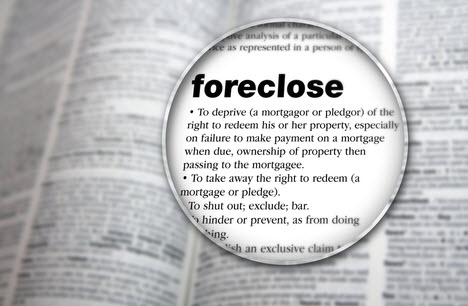When Can the Lender Enter the Borrower’s House During Foreclosure Proceedings?
Foreclosure is a long, drawn-out process, characterized by months of uncertainty and a roller coaster of fleeting hopes and disappointments. Documentaries about the housing market crisis of 2008 and movies and TV shows in which the characters are facing mortgage foreclosure tend to focus on the dramatic moment when representatives of the mortgage lender enter the house, escorted by sheriff’s deputies, and evict the residents who used to own the house and who held onto the hope that they could stay until the last possible moment. That scenario rarely plays out in reality. What happens more often is that the homeowners move out when they know that they have no chance of stopping the foreclosure process, or else they find a way to avert the foreclosure before it gets to the point where the house goes to a foreclosure sale and the lender can repossess it. If you are a mortgage lender, and loans you have issued are at risk of default, a Birmingham, Alabama foreclosure lawyer can help you mitigate your financial losses as much as possible.
You Have the Right to Secure Your Collateral
If the borrower is still living in the house when their mortgage loan goes to foreclosure, you as the mortgage lender do not have the right to enter the house until the bitter end, that is, until after the sheriff’s sale or the foreclosure sale. If the borrower abandons the house, however, you can enter the house as soon as you are sure that the house has been abandoned, even if it is very early in the foreclosure process, such as if the borrower has missed two mortgage payments. As the lender of a secured loan, it is your right to secure your collateral and protect it against depreciation of value. For example, you can change the locks and bolt the windows shut to guard against squatters, and you can winterize the house by turning off the utilities to prevent flooding and fire damage. You can also remove animals, food, and dangerous chemicals from the house.
You Get More Money If the Borrower Gets to Stay in the House
If a borrower defaults on a mortgage loan, you can recover some of your losses by repossessing the house, but there is a better solution. Renegotiating the loan has greater long-term rewards both for the creditor and the borrower. If the borrower gets to keep the house, everyone wins. If you can renegotiate the loan for a longer term of repayment, you will still recover the money you lent and earn interest on it. It will take a longer time to get the full loan amount returned, but you will eventually get it. The Home Affordable Modification Program (HAMP) helps borrowers and mortgage lenders help both parties renegotiate a mortgage loan with low enough monthly payments that the borrower will be able to stay in the house.
Let Us Help You Today
An Alabama foreclosure attorney can help you exercise your rights as a creditor when borrowers are in default on their home mortgage loans. Contact Cloud Willis & Ellis for help today.
makinghomeaffordable.gov/already/pages/already-mha-understand-terms-modification.aspx


